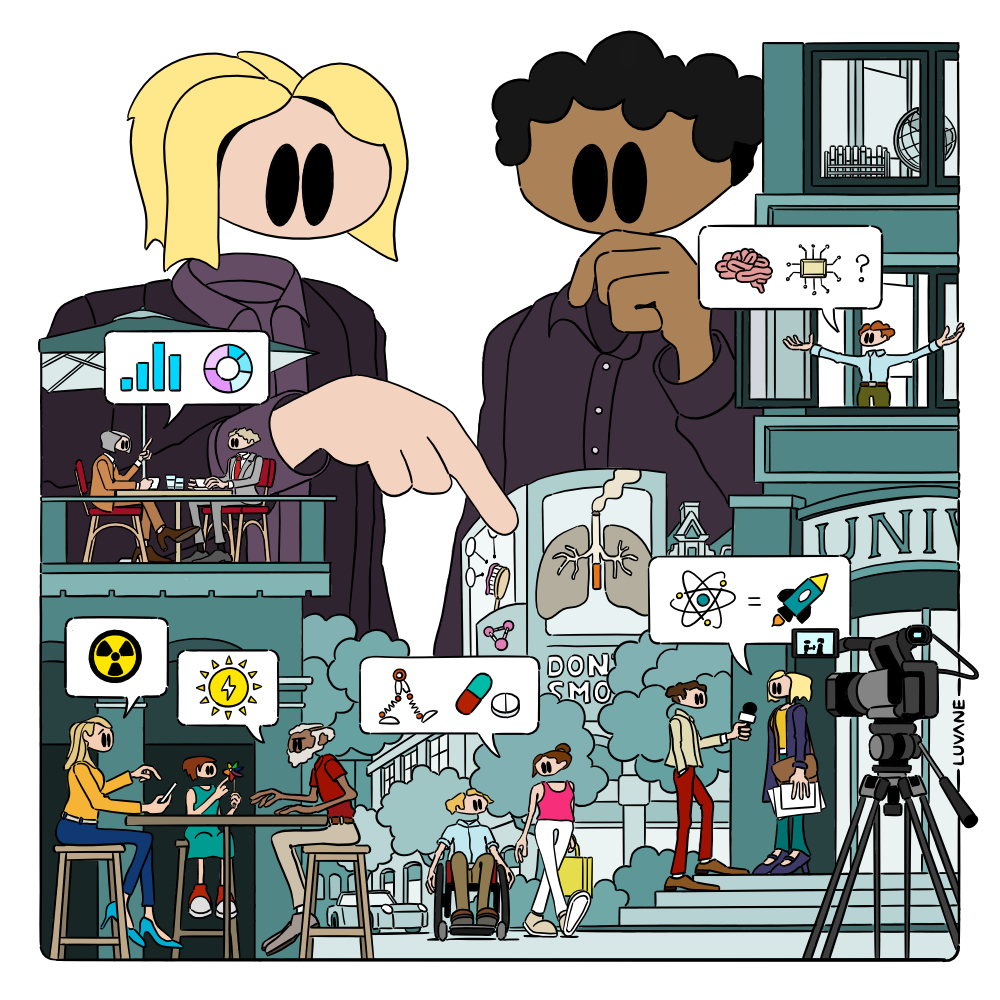In the Research Centre for Science Communication and Engagement, we aim to connect science communication research, teaching and practice at the University of Twente.
The urgency for communicating science and dialogues with society has become more prominent in recent years. It contributes to changing roles of researchers in the public domain. Increasing amounts of misinformation have further increased the need for understanding how science communication dynamics work.

The Research Centre for Science Communication and Engagement is a place where research into science communication and societal engagement, teaching and practice meet.
This website offers an overview of, first of all, research in the science communication domain that is conducted at the UT, often in collaboration with other partners and groups. Secondly, an overview of relevant science communication teaching at the UT trough courses and training is offered. And, thirdly, it showcases practices of and experiences with engaging with audiences and communicating science at the UT and wider.
Themes
Central themes in our projects, in line with UT policy to empower society through sustainable solutions, are ‘better understanding science-society relationships’ and ‘changing roles for researchers by engaging with society’.
Better understanding science-society relationships Science-society interactions, for long, have been topic of research in science communication. In particular, those areas where tensions exist have been studied frequently since these offer valuable insights in the dynamics with implications for science-society relationships. Understanding attitudes and perceptions of publics, and trust in researchers or other actors, for example, contribute to understanding acceptance of science and technology and lead to better informed communication and engagement strategies in practice.
For example, analysis of public debates on topics such as biotechnology, nanotechnology or artificial intelligence gives us valuable insights of citizens’ views towards new and emerging technologies. With co-creation methodologies we are able to build and enhance those relationships. And, incorporating findings from research and experiences from practice into our teaching gives researchers and students insights in what makes these relationships valuable.
Changing roles for researchers by engaging with society Recent crises, such as the COVID-19 pandemic and climate change, have increased the need for reliable information while citizens and others, at the same time, ask for more (societal) engagement with science. Traditionally, both researchers as well as science journalists play an important role in offering reliable scientific information and helping making sense of that information.
In the public domain, however, roles of both researchers and journalists are changing quickly due to the easy access to social media, the recent technological developments in artificial intelligence such as ChatGPT, and the possibility that everyone can reach and interact with large audiences directly without intermediaries such as journalists.
The recent changes have implications. Scientific knowledge is in competition with other types of knowledge. Science journalists cannot limit their roles to critical watchdogs or gatekeepers anymore. Roles for researchers in the public domain as experts with their expertise knowledge have changed into a plurality of roles. Engagement of researchers with society is more common nowadays. With, for example, media analysis of frames or interviews with both journalists and scientists we gain insights in these changing roles and its implications for engagement.
Contact
If you have research, teaching or practices to add, or other questions, or you want to discuss research proposals to include science communication research, please contact:


